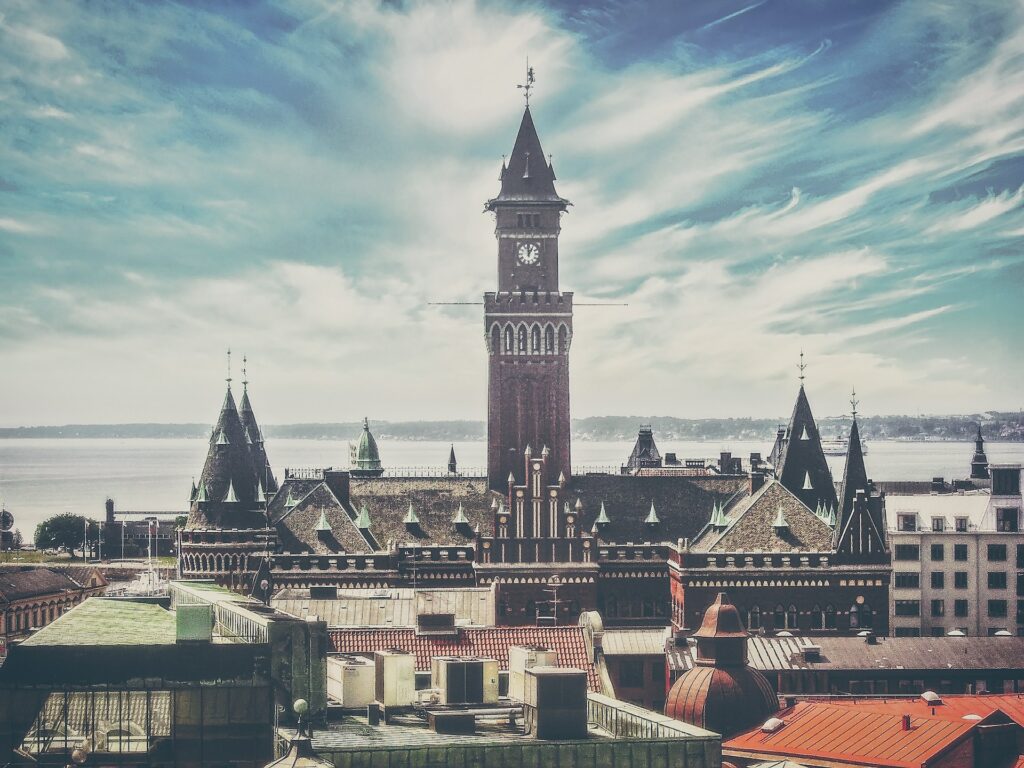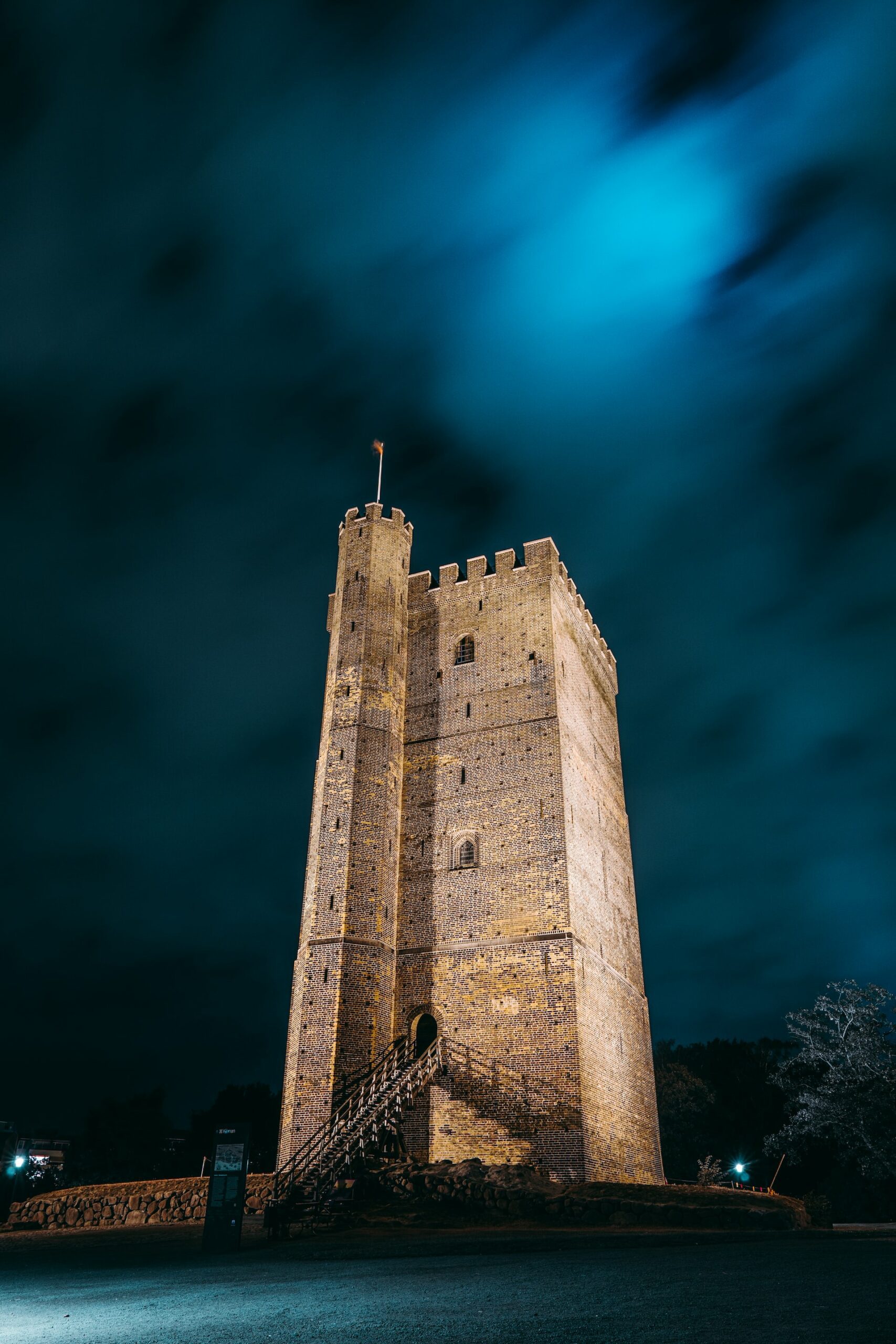Interrail in Sweden: the ultimate country guide 🇸🇪
- Incredible nature
- Great food
- Loads of museums
- Amazing wildlife
- Fika culture
Incredible nature
Fika culture
Great food
Loads of museums
Amazing wildlife
Table of contents 🇸🇪
Sweden overview
- Population: 10.4 million
- Capital: Stockholm
- Language: Swedish
- Currency: Swedish krona
- Dialling code: +46
Easily one of the most beautiful Scandinavian countries, Sweden is home to thousands of coastal islands, lush forests, glacial mountains (including 6 mountain ranges) and nearly 100,000 lakes. An incredible mixture of natural beauty and impressive architecture (both historic and modern), there’s so much to keep you occupied throughout your interrailing trip.
When you’re interrailing around Sweden, you can either choose the Global Pass as part of a bigger trip or a One Country Pass if you’re only travelling around Sweden. And if you’re looking to explore Sweden alone, you’re in for a treat. There are so many awe-inspiring cities, villages and scenic beauty for you to enjoy.
For those looking for a weekend break, then Stockholm is perfect. The capital of Sweden, it’s built on 14 islands, has renowned restaurants and some truly magnificent museums for those looking to get their culture fix. Alternatively, you could head to Malmo. A bustling coastal town, it’s located on one end of the Öresund Bridge.
If you’re looking to travel to Sweden in early summer (around June) then you can look forward to its national holiday – Midsummer. During this extraordinary holiday, everyone indulges in delicious food, dances, sings and goes camping. If that’s not your thing, then you can alternatively go to one of the music festivals that Sweden is host to. From the yearly Stockholm jazz festival to the beer and whisky festival in Jarlsberg.
Anyway, you’re probably wondering what the best places to visit in Sweden are. So we’ve created a list of these to help with your Interrail planning!
The top 5 cities to visit in Sweden
Stockholm
As mentioned above, Stockholm is a must-see. A beautiful city, it offers a combination of modern and historic attractions. Small enough to explore in a couple of days, you can wander around the cobbled streets and gaze at the uniquely-coloured buildings within its old town (Gamla Stan). Within the old town, you can take in the sights of the Kungliga Slottet Royal Palace, Noble Museum and the Storkyrkan Cathedral.
As the capital is situated on 14 islands, there are 50 bridges connecting each of them that you can walk across during your time there. Alternatively, you could hop aboard a ferry or sightseeing boat to explore each of the islands.
Located on an old waterfront within a red-brick building is the Panoramic Art Gallery Fotografiska. A photography gallery, it has a variety of exhibitions throughout the year, including some on politics, celebrities and the history of the news. But not only do you have rotating exhibitions to enjoy, you can also indulge in delicious food within its restaurant, buffet, bistro or espresso bar.
If you’re looking for something a little more relaxing, then you can head out into the Monteliusvagen Cliff Path. Whilst on the walk, you could stop and admire the sun going down over the surface of Lake Malaren – truly an unforgettable sight. Another option is to sail through the archipelago that Stockholm sits within. One ferry ride that’s particularly worth doing sails between the islands and lasts just shy of three hours. This journey gives you the opportunity to see the main tourist spots, as well as the more remote islands.
But where should you eat when you go to Stockholm? Our first recommendation is The Hairy Pig. Offering a variety of cuisine, from classic Swedish boards (including the likes of wild boar) to the more exotic moose carpaccio, this restaurant is bound to go down a hit. Another great option is the Stockholm’s Gastabud. A cosy restaurant, it has traditional Swedish fare, including pickled herring, shrimp toast and beetroot with goat cheese.
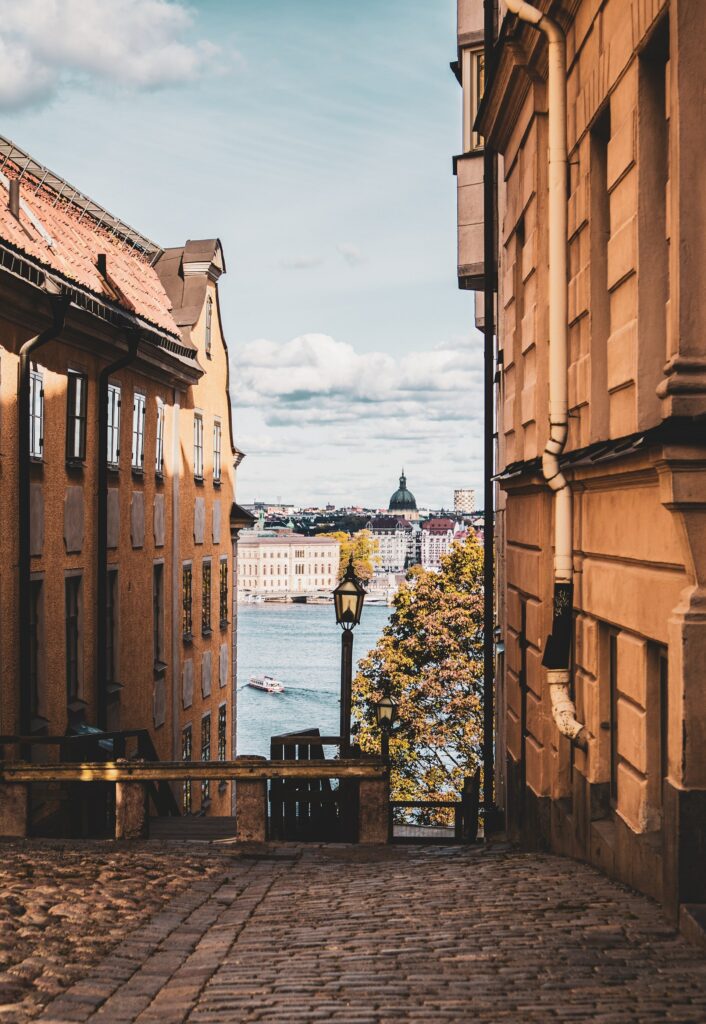
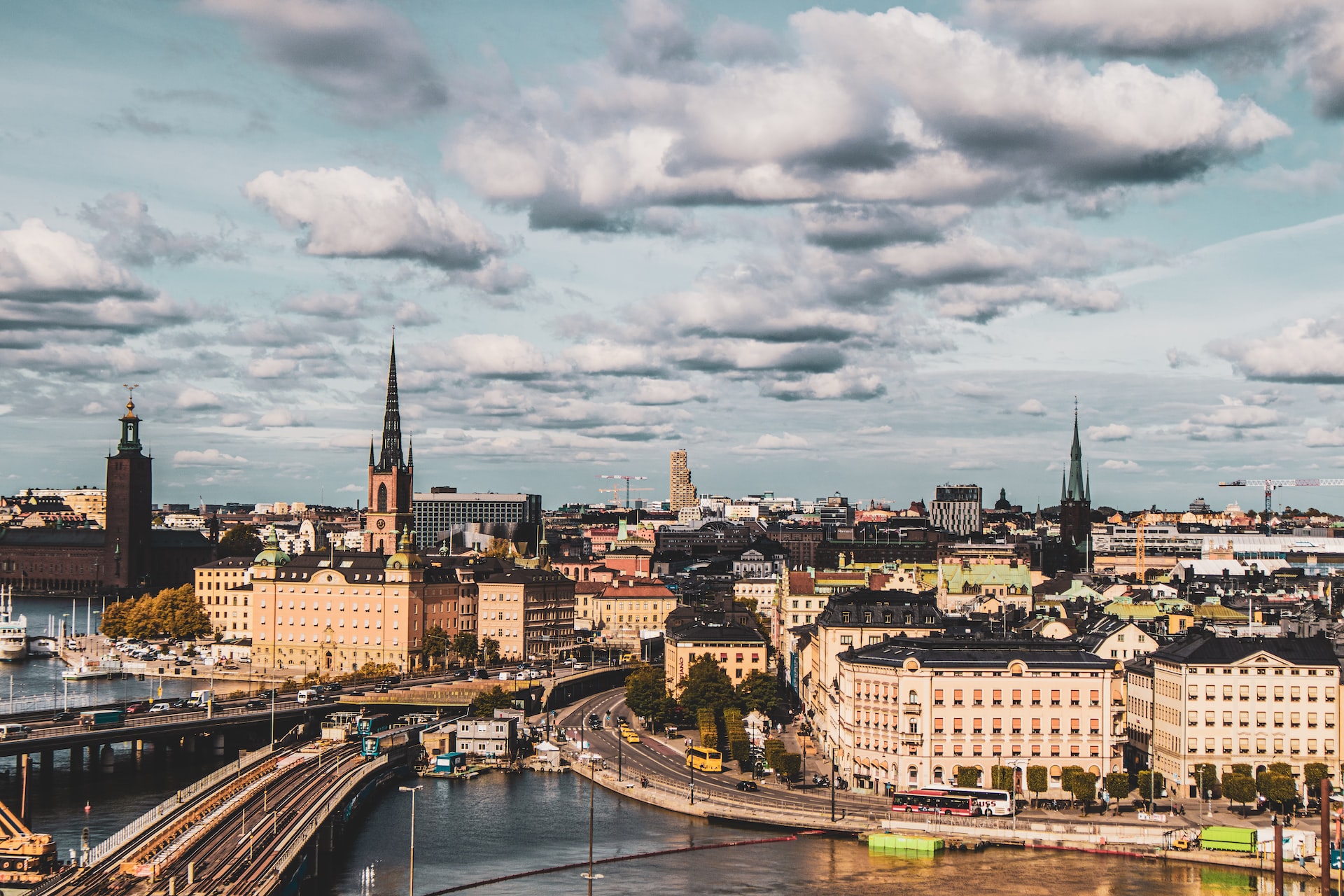
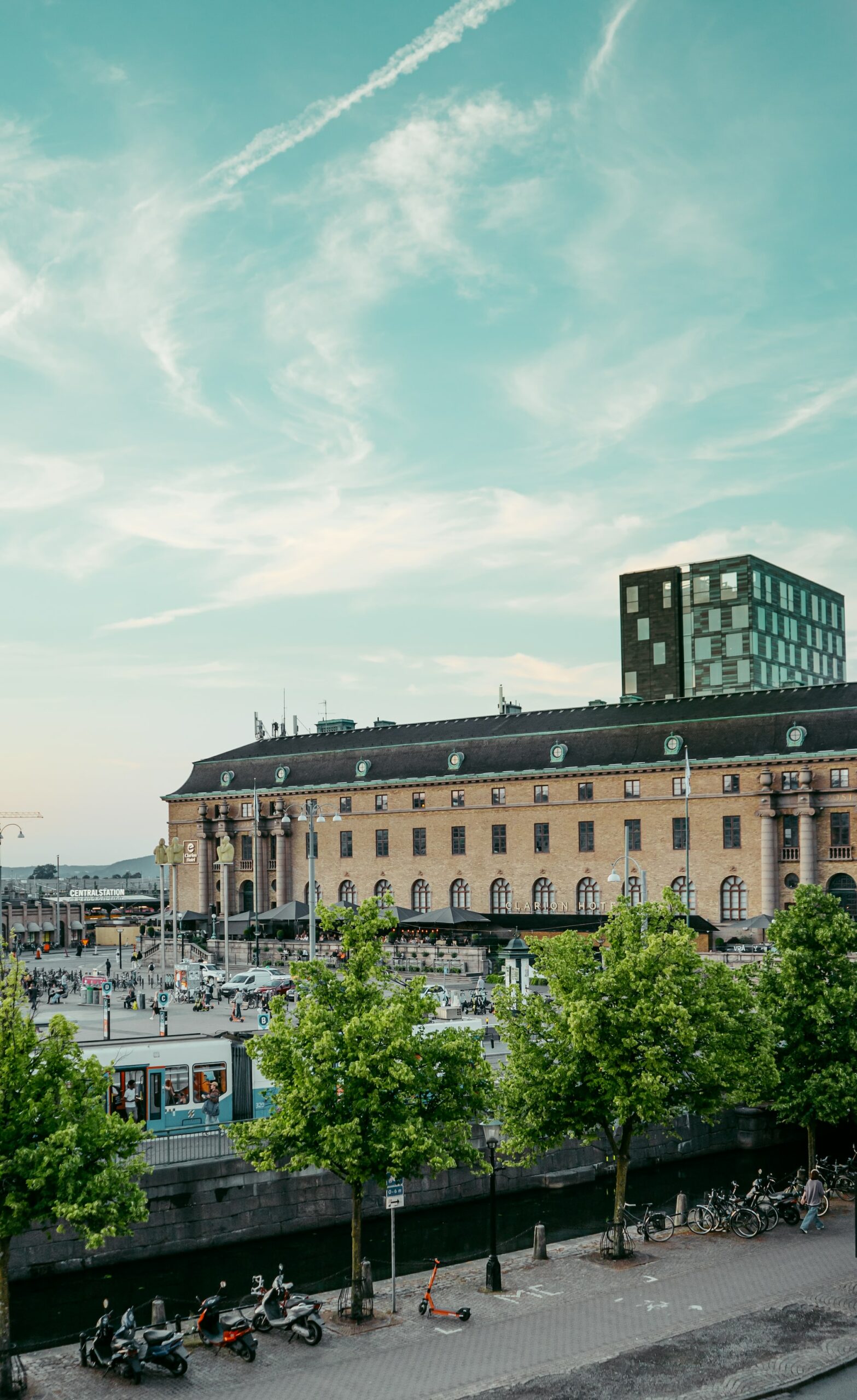
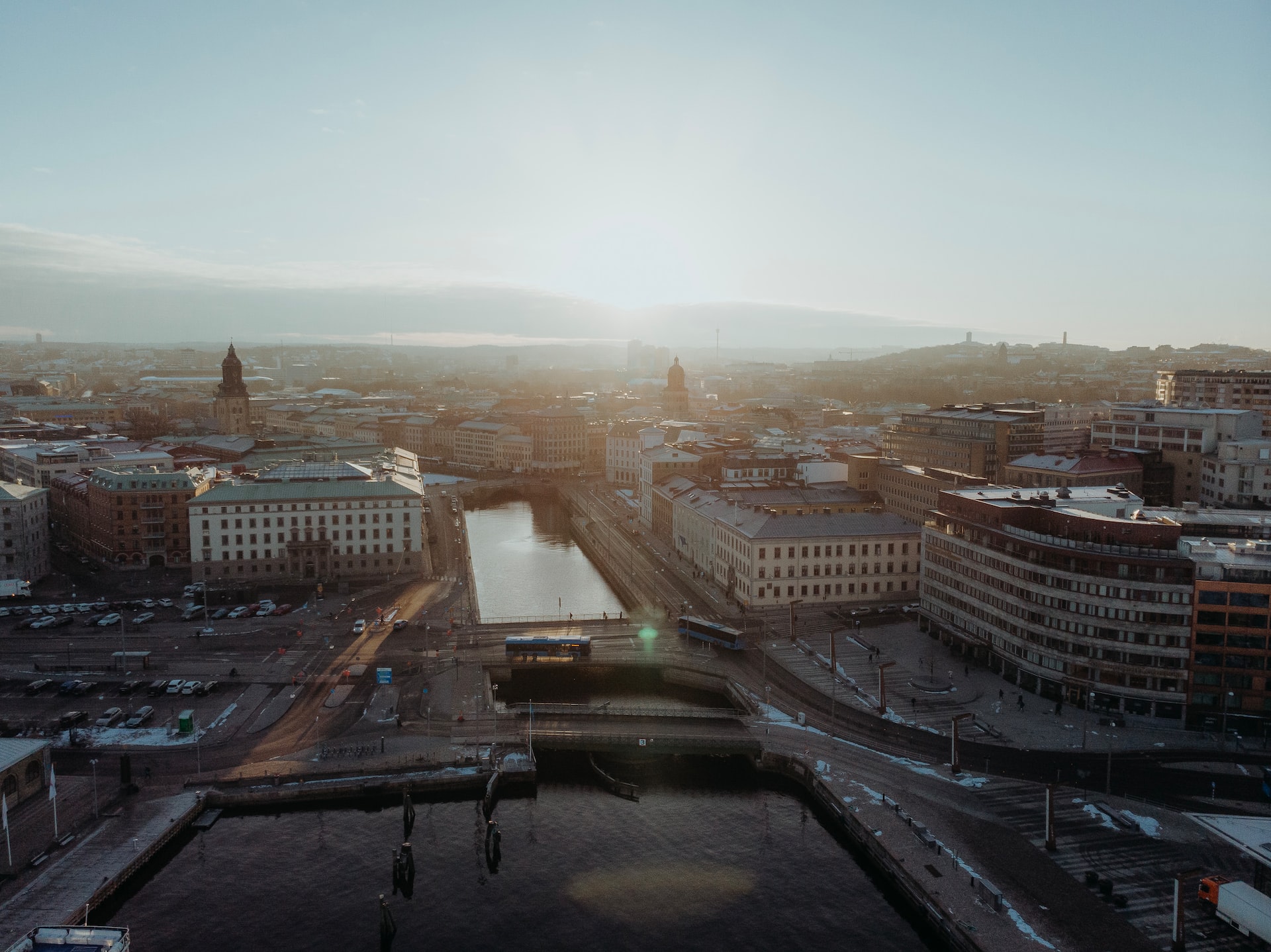
Gothenburg
The next city that we recommend is Gothenburg. A prominent city within Sweden, it’s situated on the west coast, just off of the Göta älv River. Beloved due to its relaxed vibe, Gothenburg is abundant with leafy streets, beautiful canals and dozens of cafes and shops. There’s even an amusement park (called Liseberg), that’s popular with both tourists and locals that has a picturesque garden, numerous rides and a performance venue.
Full to the brim with attractions, it has something for everyone; whether you want to delve into Sweden’s diverse culture, take delight in one of its world-renowned restaurants or relax and take in its beautiful natural scenery. With most of it accessible by foot, you can spend a weekend or more experiencing Gothenburg to the full.
In particular, the historic suburb of Haga is worth a trip to. Dating back to the 17th century, there are dozens of wooden houses dating back to the late 19th Century. Not to mention the candlelit cafes, quaint shops (that sell a mixture of clothing, books and crafts) terraced pubs and the extraordinary Skansen Kronan. A 17th-century fortress, it boasts panoramic views of the city.
Alternatively, you could get your nature fix by visiting the Slottsskogen Park. A haven for nature lovers, it has manicured parkland and a natural forest for you to explore. It also is host to numerous events throughout the year, including a musical festival every August. The Way Out West festival has a variety of popular music artists perform throughout three days, from electronic acts to hip-hop and rock.
Or perhaps you’re a car enthusiast? If that’s the case, then a trip to the Volvo Museum will go down a hit. Covering Volvo’s history, from its first motor to the newest models, alongside various other exhibits, the museum offers something a little different to the other attractions within Gothenburg.
After long days of exploring, you’re going to want to tuck into some delicious food. Well in Gothenburg, you’re not short of great places to eat. For example, The Barn offers decadent burgers that are bound to satisfy those hunger pangs. Or perhaps you’re looking for something a little fancier? Then Somm might just hit the spot. A restaurant and wine bar, this exquisite venue has the likes of celeriac with grilled butter and raw beef served with chanterelles.
Malmo
Another city that’s a must-visit when interrailing around Sweden is Malmo. A coastal city in the south of the country, it has sandy beaches, spectacular scenery and a fascinating history that you can delve into throughout your getaway. The rich diversity of the city also adds to its incredible culture and it’s said that the locals within Malmo come from over 180 different countries!
Located at the eastern end of the Oresund Bridge (which connects Denmark to Sweden), Malmo is an underrated city that deserves more praise when it comes to the attractions it has on offer; which includes the unique Malmo Castle, Lilla Torg, and Pildammsparken to name a few.
Distinctive in its appearance, Malmo Castle was once a prominent Danish stronghold that dates back to 1434. Throughout the years the castle has gone through several renovations, including one in 1658 that added a defence system which helped guard it against the 1675 Danish siege. It also served as a prison between 1828 and 1909. Now a museum, a trip to the castle will keep you occupied for a whole day.
The Lilla Torg is another prominent attraction that’s worth a wander to throughout your time in Malmo. A breathtaking cobblestone square, it has dozens of terraced restaurants and cafes that look out onto the historic buildings surrounding it.
Last but not least is the Pildammsparken. Located in the south of the city, the Pildammsparken is a park that spans 45 hectares. Designed specifically for the Baltic Exhibition in 1914, it has manicured gardens and an array of exotic birds that you can spend hours gazing at.
Like the other cities on this list, Malmo is also not short of places to satisfy your hunger. Firstly, there is Quan. Although this doesn’t offer traditional Swedish fare, it does offer something a little different – a mixture of Asian and European cuisine. Another great option is Soho in Malmo. From mushroom dumplings to creme brûlée, this stylish restaurant offers decadent options that are bound to suit you no matter your craving.
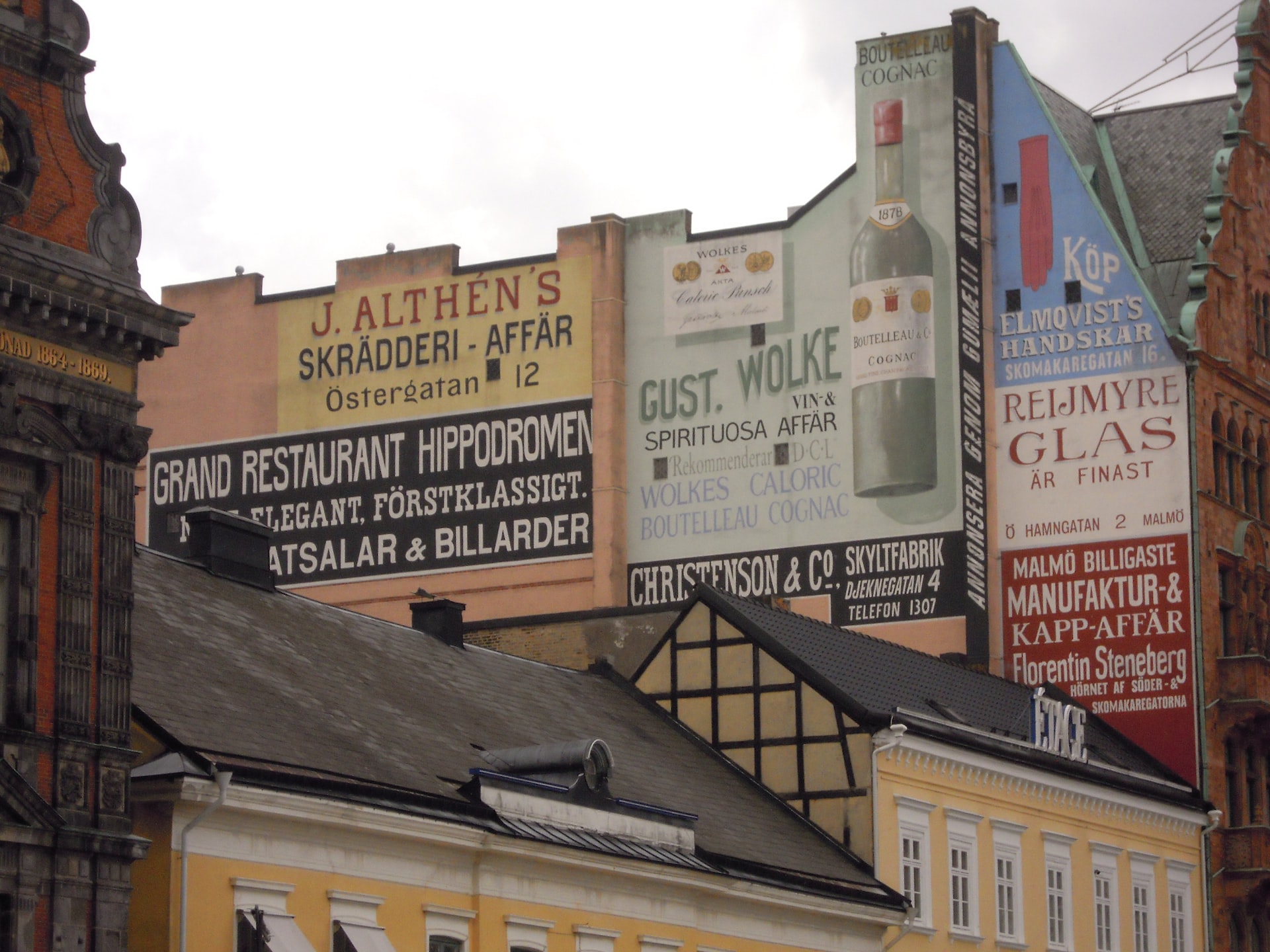
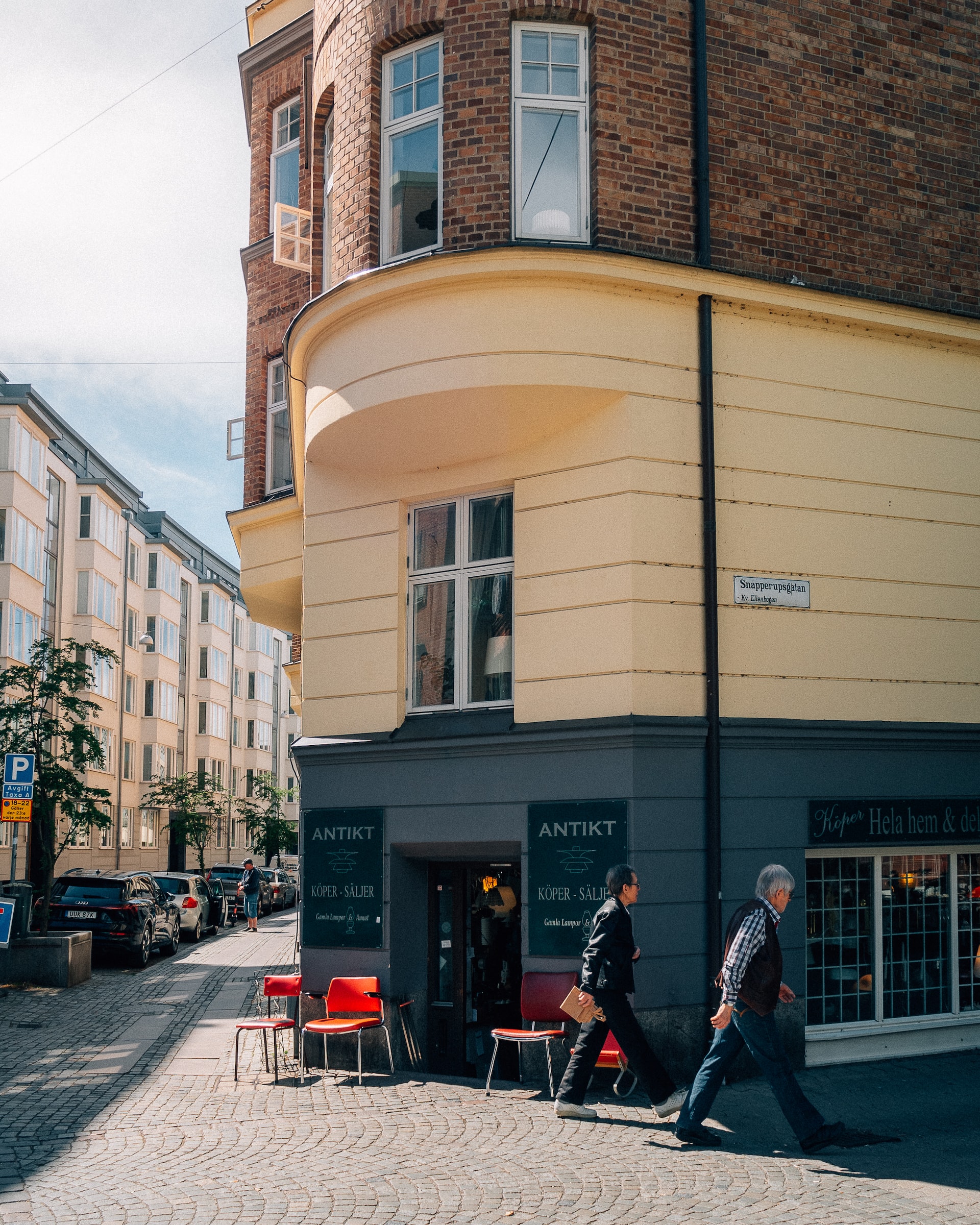
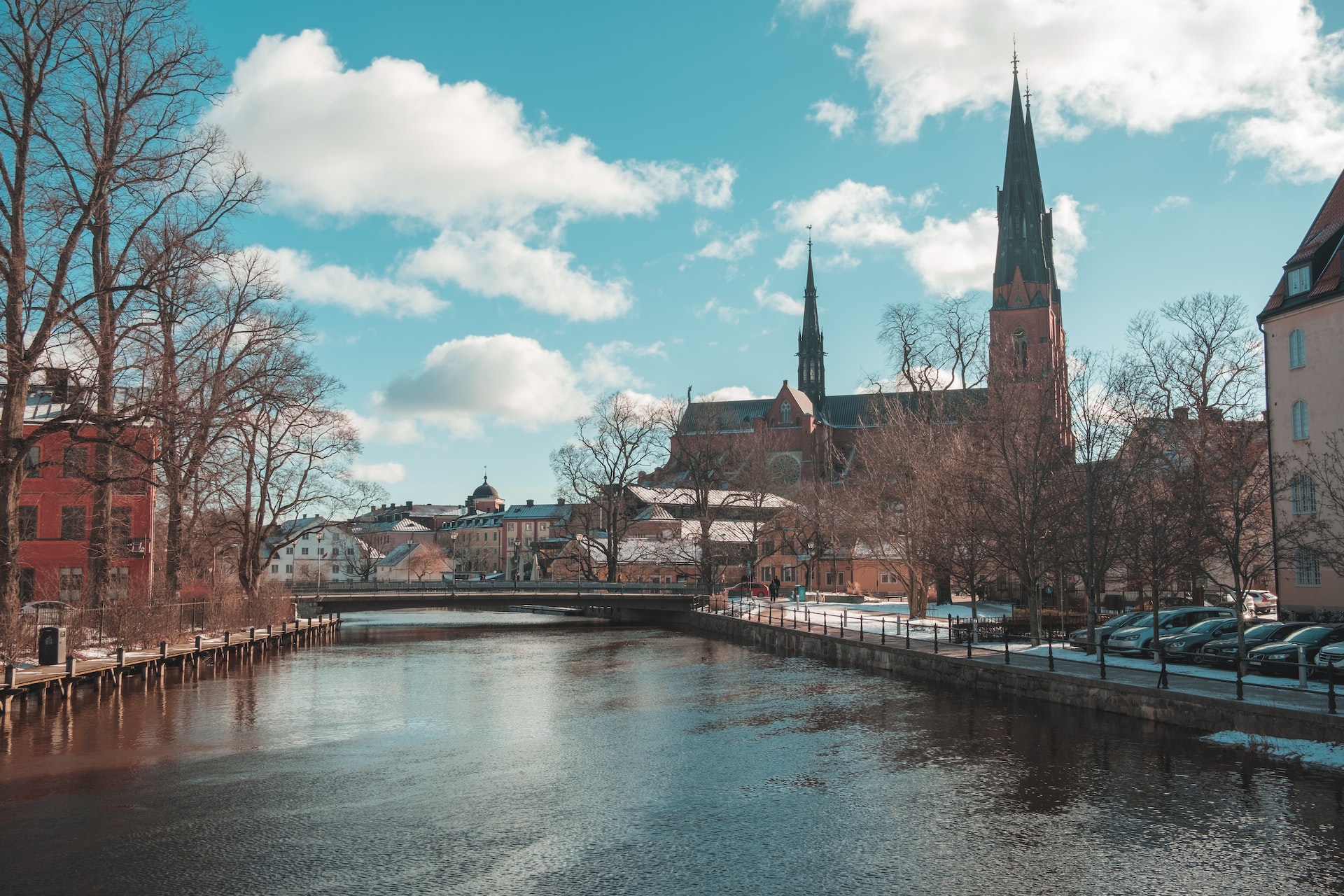
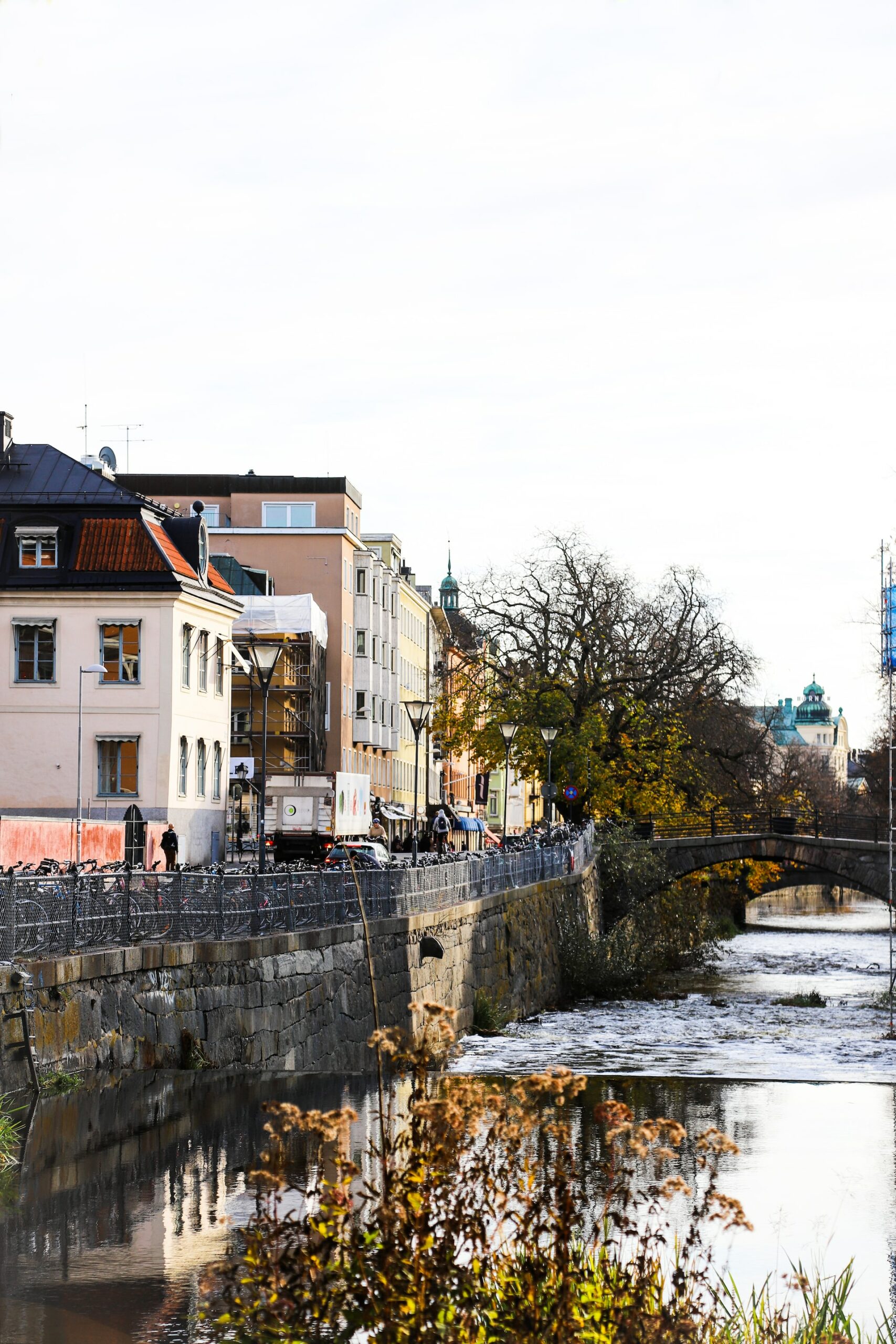
Uppsala
Located just under an hour from Stockholm, Uppsala is a fascinating medieval city that has a laid-back feel. Home to the Uppsala University, which dates back to the 15th-century, it’s Sweden’s fourth largest city. Full of winding streets, waterways and bicycles, it’s one of Sweden’s more picturesque cities.
Its incredible history even dates back to Viking times. For example, the Temple of Uppsala is a popular attraction that was a religious centre for the Old Norse religion. Within Uppsala’s cathedral – that’s nearly 600 years old – there also lies the 18th-century botanist Carl Linnaneus and the 16th-century king Gustav Vasa.
The river Fyris bisects the town; with the historic quarter on the west and the residential/commercial areas to the east. Within its historic old town, you can discover a handful of quaint shops, restaurants, cafes and dozens of popular tourist attractions. Whereas within the east of the city, you’ll find accommodation, Linnaeus garden and residential neighbourhoods.
As previously mentioned, the Uppsala Cathedral is a unique, historic attraction that should be on your list. Built 587 years ago, it’s arguably Uppsala’s most distinctive landmark. Throughout the years the cathedral has been renovated, changing styles to match the era; its most recent being in 1893, to a neo-gothic style. Within this renovation they added stained glass windows, murals and huge twin spires.
Another must-see when in Uppsala is the Uppsala Castle. Overlooking the city, its distinctive appearance is unlike any castle in Europe. The official residence of the County Governor, it’s played host to numerous prominent events throughout history – including the Sture murders in 1567. It also has rotating art exhibitions within it throughout the year for tourists to enjoy.
For those into their history, you could also visit the royal Viking burial mounds at Gamla Uppsala. Just shy of four kilometres from the city centre, there are over 300 burial mounds – including the graves of queens, kings and notable figures in Viking history. There’s even an ancient church (known as the Gamla Uppsala Kyrka) that stands within its grounds.
Helsingborg
And last but certainly not least is Helsingborg. Similarly to Malmo, Helsingborg is a coastal southern city that’s just across from the Oresund Strait. Home to a medieval tower, a Gothic church and tall clock tower, it’s a hidden gem that should be explored whilst on your interrailing trip.
Like others on this list, Helsingborg is celebrated for its rich history, along with its innovation. It even won an award at the European Capital of Innovation Awards in 2020 due to the way that it frequently innovates itself to improve the lives of its residents. For example, it has electric, zero-emission ferries that both tourists and locals can use to get between Helsingborg and Helsingor.
The most popular and perhaps most well-known landmark is the Karnan (medieval tower). Visible from the sea, the tower stands at a jaw-dropping 35 metres high within the upper end of the market square. Built in the 1300s, you can climb its 190 steps to enjoy views out over the town.
Another top attraction in Helsingborg is the Sofiero Castle. Situated around 5km from the city, it was built in the 19th-century and has a beautiful park to wander around. It was also notoriously the summer getaway for Swedish royalty; it’s not hard to see why. Within the spring and summer there are numerous exhibitions, events and more to take advantage of.
Lastly, the town hall (Helsingborgs radhus). When you see this town hall, you might notice that this striking building not only has a castle-like appearance, but a tower that stands tall above it; 65 metres to be exact! A neo-Gothic design, the eye-catching landmark dates from 1875.
When it comes to restaurants and bars, you’ll have a great selection to choose from. For example, Barrica Mat & Vinbar. The moment you step in this lively venue you’ll be greeted with the smell of succulent meat, salt-sprinkled seafood and a welcoming atmosphere that makes you feel right at home. Drottninggaten 35 is another great option – here you’ll find a combination of Scandinavian and Swedish dishes, including oysters and tapas.
People who visit Sweden also visit...
Norway 🇳🇴
Denmark 🇩🇰
Which Interrail pass do I need to travel around Sweden?
Interrail Global Pass
Interrail Sweden Pass
Do I need to make train seat reservations in Sweden?
Reservations are compulsory for:
– SJ high-speed trains: approximately €7 in 2nd class and €17 in 1st class
– SJ intercity trains: approximately €3 in both 2nd and 1st class
– SJ domestic night trains: fees depend on destination and type of seat/bed booked.
– SJ Euronight: Fees depend on destination and type of seat/bed booked.
– Snälltåget night train: fees depend on destination and type of seat/bed booked.
Reservations are optional for:
– SJ Regional (R): Approximately €3
– Inlandsbanan scenic train: Approximately €5.50
How can I make reservations for trains in Sweden?
– On SJ‘s website
– On Snälltåget‘s website
– At a ticket desk or self-service machine at Swedish train stations
Where to stay in Sweden
Generator - Stockholm
STF Goteborg Stigbergsliden Hostel - Gothenburg
Hotel N Hostel Malmö City - Malmo
Centralisation Vandrarhem - Uppsala
Events in Sweden
Stockholm Jazz Festival
Gothenburg West Pride
Öl & Whisky Festival - Malmö
Uppsala Reggae Festival
Read more about Sweden on our blog

The 5 most vegan-friendly cities to visit in Europe on your Interrail trip
Travelling as a vegan often means having to think about the food options available in the destinations you want to head to. So, if you’re

New night trains in Europe
If you’re planning on interrailing around Europe, then you’ll want to start thinking about which trains you need to take along the way. And with
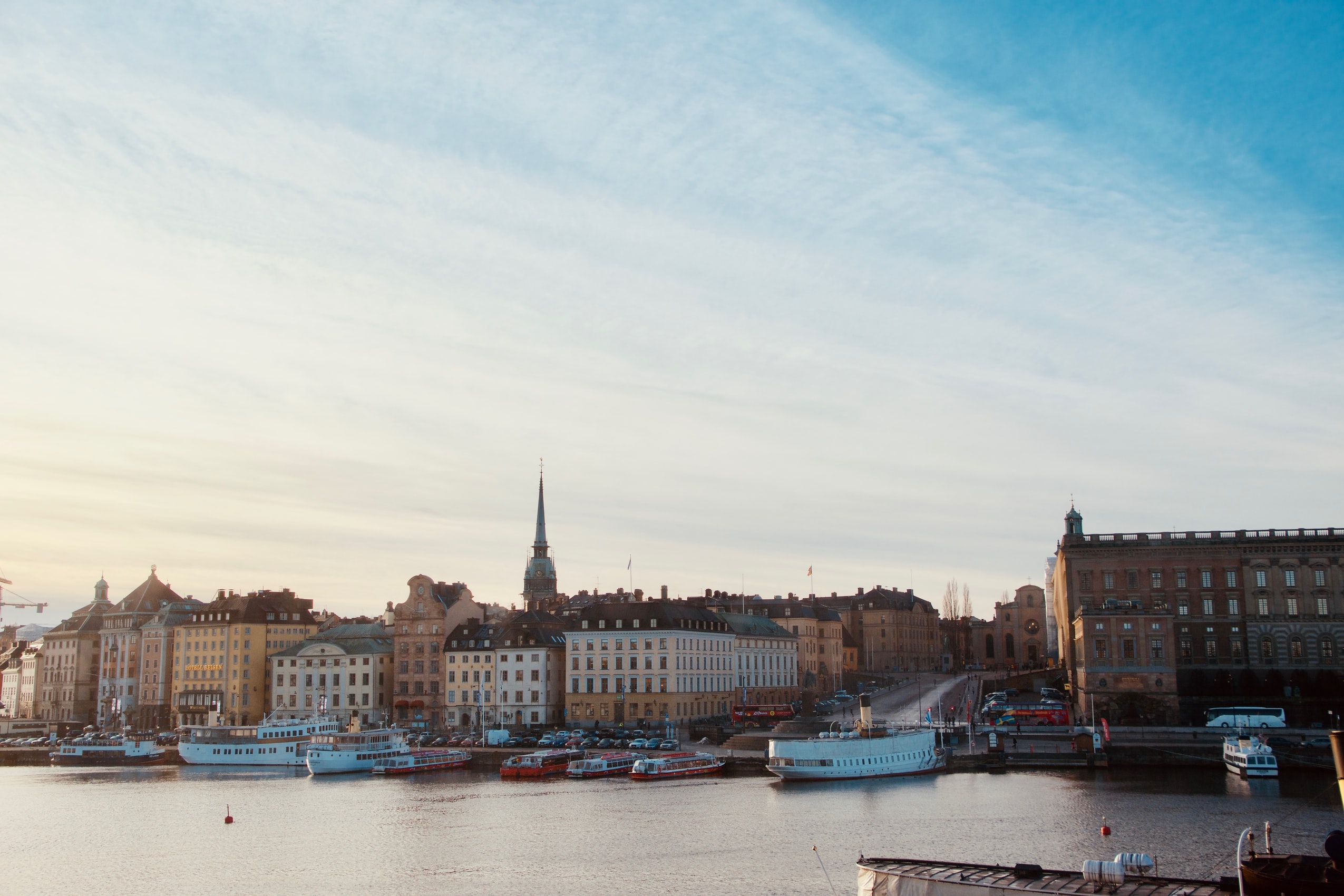
Interrailing in Scandinavia: where to go and how much will it cost?
What do you think of when you picture the Scandinavian region? Probably ice and snow, but the area made up of Sweden, Finland, Norway, Iceland
